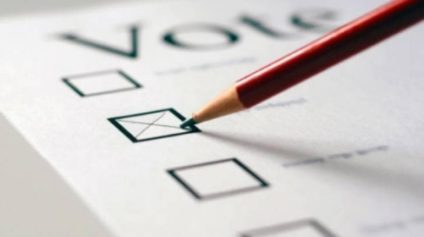
In a speech at Georgetown University Law Center in Washington, D.C., Holder continued his efforts to reform the criminal justice system to work better for African-Americans, such as his attempt to reduce mandatory minimum sentences and to reform drug sentencing laws that disproportionately punish Blacks.
About 1 in 13 African-American adults across the country is banned from the polls—and as many as 1 in 5 in Kentucky, Virginia and Florida, where a change in the laws would have allowed some 800,000 Floridians to vote in the 2000 presidential election that George W. Bush won by 537 votes in Florida.
One 2002 study by scholars at Northwestern and University of Minnesota found that the disenfranchisement laws may have determined the outcome of seven Senate races and thus control of the Senate throughout the 1990s—in addition to the Bush-Gore election.
There are 11 states that restrict a felon’s voting rights after prison and after either probation or parole: Alabama, Arizona, Florida, Iowa, Kentucky, Mississippi, Nebraska, Nevada, Tennessee, Virginia, and Wyoming.
While Holder doesn’t have the power to force these states to amend their laws, his use of the bully pulpit could bring about reform.
“Whenever we tell citizens who have paid their debts and rejoined their communities that they are not entitled to take part in the democratic process, we fall short of the bedrock promise – of equal opportunity and equal justice – that has always served as the foundation of our legal system,” said Holder, in his speech.
Holder pointed out that these laws date back to the late 1800s, when lawmakers across the U.S. were pushing for legislation that would keep newly enfranchised African-Americans from voting.
“At worst, these laws, with their disparate impact on minority communities, echo policies enacted during a deeply troubled period in America’s past – a time of post-Civil War discrimination,” he said. “And they have their roots in centuries-old conceptions of justice that were too often based on exclusion, animus, and fear.”
“After all, at some point, 95 percent of all prisoners will be released. And just as we expect everyone who commits a crime to pay their societal debts, we also expect them to remain sober and crime-free upon their release,” Holder said. “We expect them to get jobs and find housing. And we expect them to become productive, law-abiding members of society … There is evidence to suggest that former prisoners whose voting rights are restored are significantly less likely to return to the criminal justice system.”
“These restrictions are not only unnecessary and unjust, they are also counterproductive,” he said. “By perpetuating the stigma and isolation imposed on formerly incarcerated individuals, these laws increase the likelihood they will commit future crimes. They undermine the reentry process and defy the principles – of accountability and rehabilitation – that guide our criminal justice policies. … I call upon experts and legislators to stand together in overturning an unfortunate and outdated status quo. And I call upon the American people – who overwhelmingly oppose felony disenfranchisement – to join us in bringing about the end of misguided policies that unjustly restrict what’s been called the ‘most basic right’ of American citizenship.”
The efforts to change the voting laws actually has some support among conservative Republicans, such as Tea Party stalwarts Sen. Rand Paul of Kentucky and Mike Lee of Utah, who both spoke at the conference.
Paul said he considered it a “miscarriage of justice” that 1 in 3 Black men in his state, which has one of the harshest disenfranchisement policies, is banned from voting.
“People think conservative Republicans just want to put people in jail,” he said, according to published reports. “There are Republicans on our side who will work with Democrats who will do the right thing on this.”
The New York Times pointed out that the United States, the most prolific jailer in the industrialized world, is also an outlier in lifetime voting bans. Most industrialized nations allow all non-incarcerated people to vote — and many even allow voting in prison, according to the Times.
